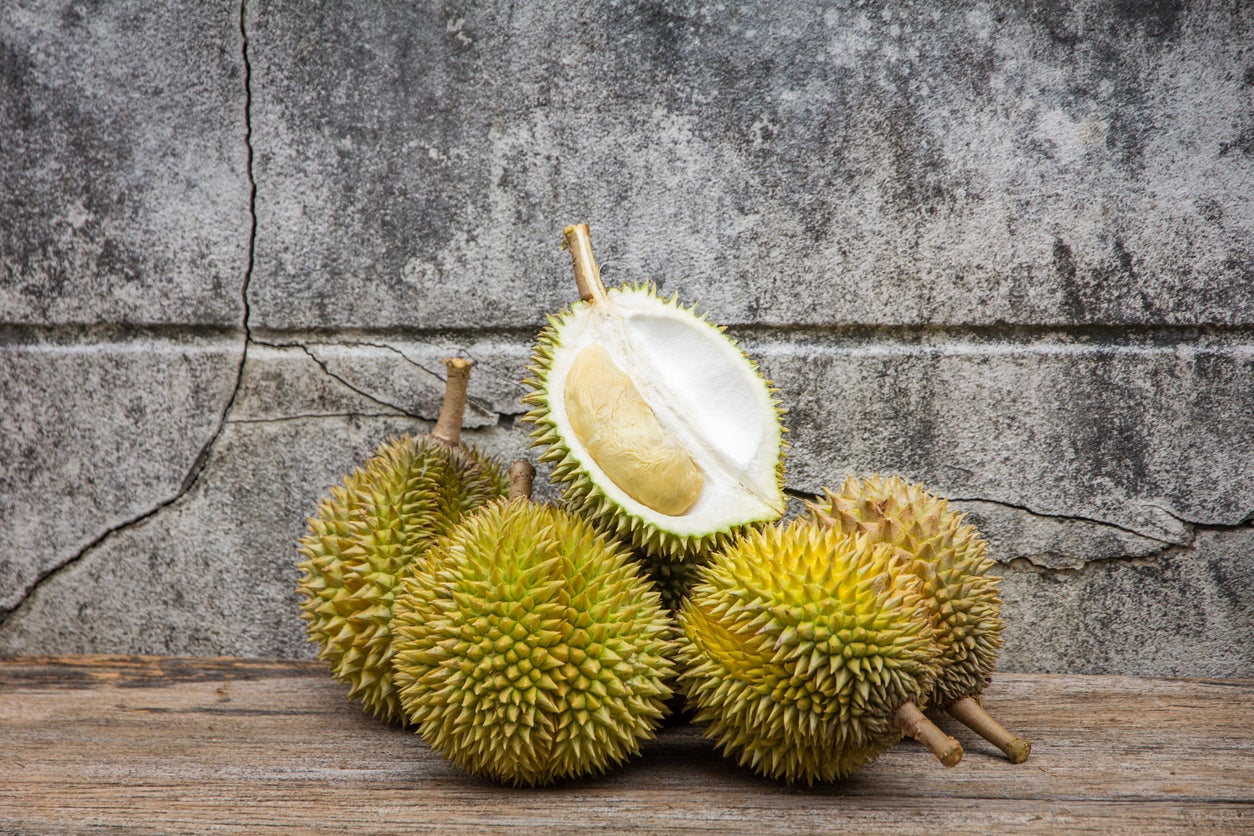Australian university evacuated over gas leak - that turns out to be rotten durian fruit
The smell of durian has been compared to onions, sewage and even turpentine

Your support helps us to tell the story
From reproductive rights to climate change to Big Tech, The Independent is on the ground when the story is developing. Whether it's investigating the financials of Elon Musk's pro-Trump PAC or producing our latest documentary, 'The A Word', which shines a light on the American women fighting for reproductive rights, we know how important it is to parse out the facts from the messaging.
At such a critical moment in US history, we need reporters on the ground. Your donation allows us to keep sending journalists to speak to both sides of the story.
The Independent is trusted by Americans across the entire political spectrum. And unlike many other quality news outlets, we choose not to lock Americans out of our reporting and analysis with paywalls. We believe quality journalism should be available to everyone, paid for by those who can afford it.
Your support makes all the difference.More than 500 people were evacuated from a university in Melbourne, Australia after the smell of a rotting durian fruit was mistaken for a gas leak.
Emergency services crews dressed in specialist masks carried out a “comprehensive search” of the building at Royal Melbourne Institute of Technology university campus library on Saturday afternoon, after receiving reports of the smell of gas.
Melbourne's Metropolitan Fire Brigade said students and staff were asked to leave the building “as a precaution” while firefighters investigated, as the building was known to store “potentially dangerous chemicals”.
But nothing except an extremely smelly fruit was found.
“After a comprehensive search, firefighters identified the smell was not chemical gas, but gas generated from rotting durian, an extremely pungent fruit which had been left rotting in a cupboard,” the fire service said in a statement.
It turned out that the famously strong smell of the durian, which has been compared to everything from onions to sewage, had made its way through the building via the air conditioning system.
The fruit, which does not need to be rotten to offend with its odour, is commonly banned across hotels and public transport across southeast Asia.
“The Environment Protection Authority will oversee the removal and storage of the waste,” the firefighters’ statement added.
They have since given the university the all clear.
Join our commenting forum
Join thought-provoking conversations, follow other Independent readers and see their replies
Comments